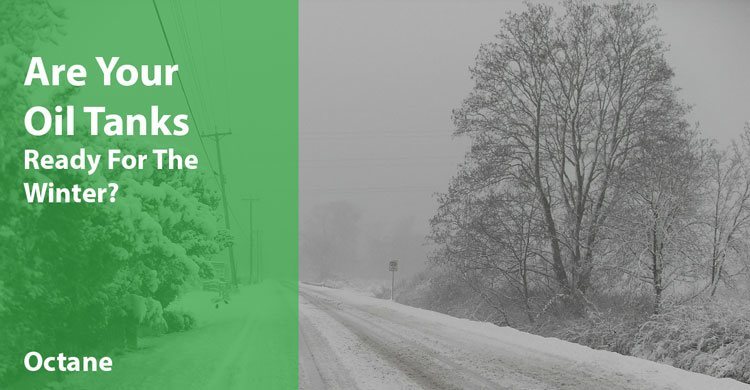
According to recent reports like this one in the Express, the UK could be about to experience one of its coldest winters on record.
The combination of a particularly strong El Niño and air pressure changes in the Arctic could lead to the worst winter in half a century. It's all coming together to create the perfect storm, and snowfall is expected across the country from as early as November.
Preparing for winter before the cold arrives is more important than ever this year, so now is the perfect time to check over your oil tank to make sure it's in good working condition.
Check Stability of the Oil Tank
The first thing to do when checking your oil tank is to make sure it is secure. If it starts to run low, it will become lighter, making it more likely to be dislodged – especially during a strong winter storm or a flood. So check the ground below the tank as well as its supports to make sure it is securely in place.
Look for Signs of Leaks
Leaks should be a priority when it comes to maintaining your tank. Oil is poisonous to wildlife and plants. Even a relatively small leak can pollute a large area, and cleaning up an oil leak is a large and potentially costly job.
Inspect your tank weekly by walking around it and looking out for signs of leaks. Black stains on the grass near to your tank are a classic sign of a problem. Also be aware of any unusual smells coming from the tank, especially a solvent odour. Anything out of the ordinary like this could indicate a leak.
Another thing to be aware of is the amount of oil your tank is using. If you become aware that you are using more oil than normal for no particular reason, this could indicate a problem.
Look for Cracks and Other Problems
As well as looking for signs of leaks, also look out for cracks in the tank. Cracks can be caused by changes in temperature and they can allow water to seep into the tank, which can affect the oil's quality and corrode the pipes.
Also look out for unusual bulges and check the fuel line for signs of damage such as crimps. Make sure the connections are tight and check that the fittings are not dripping, which could indicate that the piping is wearing out.
Check for Water in the Bund After Heavy Rain
If you have a bunded oil tank, this will contain any spillages – as long as you make sure it is well maintained. In addition, these tanks are very durable, making them a great option over the cold winter months (just make sure yours is a high-quality model compliant with PPG regulations).
The bund must be able to contain 110 per cent of the oil capacity of the tank, so it is essential that you check it after heavy rain to ensure there is no water inside. If the space is taken up by water, the bund will not be able to hold all the oil in the event of a spill, so remove any rainwater that has seeped into it.
What to Do if You Find a Problem
If you suspect a leak or you find any other problematic signs in your oil tank, don't delay in seeking professional assistance. Switch off the oil supply and call a specialist to take a look over your tank. They may have to empty the tank, or they may even recommend replacing it.
Get Your Oil Tank Professionally Serviced Once a Year
To avoid potentially costly and disruptive damage occurring to your oil tank, you may want to get in the habit of arranging an annual service for the tank by a professional. An SPA-trained engineer can check over the tank and spot potential problems while they are small, which can help to keep your oil tank in better condition and avoid expensive repairs or replacements.
Make Sure You Stay Warm this Winter
The best time to maintain oil tanks is before the winter arrives. That way you can enjoy peace of mind in knowing that your tank is unlikely to cause any problems when the coldest weather hits, which is going to be even more important this year.
So check over your oil tank, or get a professional technician to look over it for you and get into the habit of checking it every week to spot signs of any problems. Bunded fuel tanks last a long time if you maintain them properly, so take all the precautions you can to ensure you stay warm when the cold weather hits.